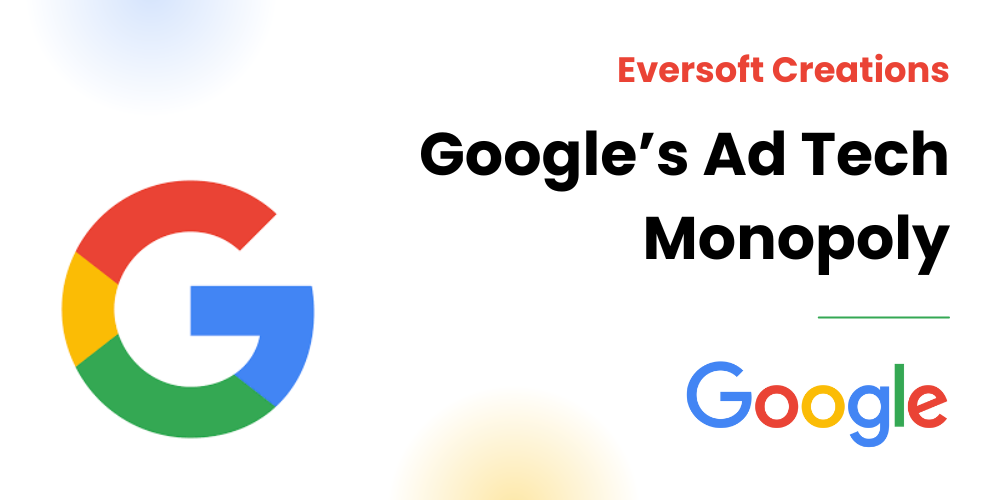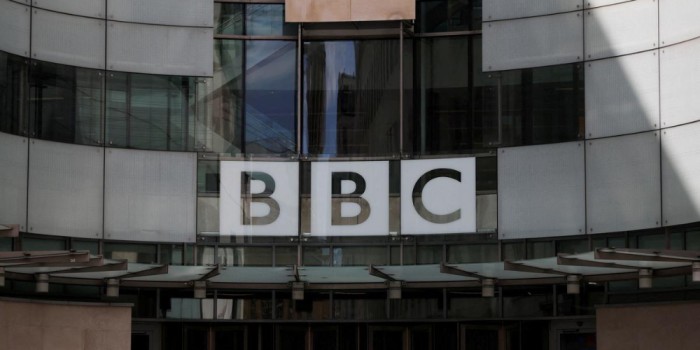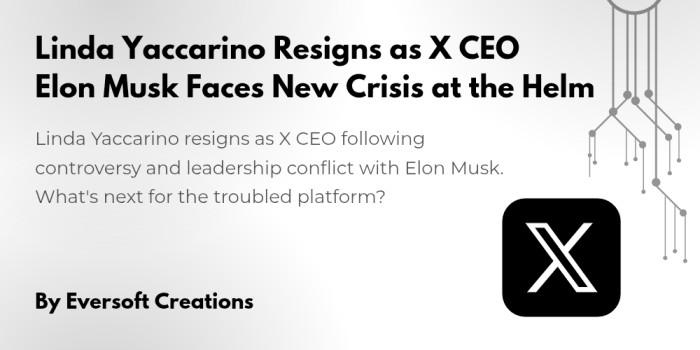Introduction: Google’s Historic Antitrust Loss
The legal system delivered its third major antitrust finding against Google on April 17th, 2025 when a U.S. federal judge declared the company guilty of unlawful digital advertising technology (ad tech market control. The court decision handed down by Judge Leonie Brinkema established that Google implemented monopolistic practices that produced harm to publishers and advertisers plus consumers while denying innovation within the online advertising market.
The case represents a milestone in digital economy history since it may require Google to split up its advertising technology operations through structural reforms. The court decision reveals how business operations can expect to encounter better competition and increased advertising transparency across their upcoming ad landscape.
The Core of the Case: What Google Did Wrong
Monopolizing Two Key Markets
Judge Brinkema established Google maintained its monopoly power deliberately in:
- Publisher ad servers (e.g., DoubleClick for Publishers/DFP)
- Ad exchanges (e.g., Google AdX)
The dual control over DBM and DoubleClick used by Google resulted in auction manipulation and competition suppression that enforced publisher use of its bundled tools while restricting cooperation with competitors like The Trade Desk or Meta.
Unlawful Tying and Anti-Competitive Tactics
- Forced Bundling: The usage of Google’s DFP ad server for publishers resulted in forced implementation of AdX exchange that confined them within Google’s strategic network.
- Suppressing Header Bidding: Google restricted the implementation of header bidding that would give publishers an opportunity to bypass AdX while obtaining higher advertising rates.
- Self-Preferencing: Internal Google operations supported its own ads during auctions which raised advertiser expenses while diminishing publisher earnings.
The Judge’s Verdict: Key Findings
- Guilty of Monopoly Power: The company violated Section 2 of Sherman Antitrust Act by controlling publisher ad servers and exchanges.
- Harm to the Open Web: Google acquired a status of “substantially harmful” when it caused reduced competition together with diminished transparency.
- One Claim Dismissed: The DOJ did not demonstrate that Google had monopoly control over advertiser ad networks which yielded a beneficial outcome for the company.
Judge Brinkema’s Scathing Critique
“Google’s exclusionary conduct deprived rivals of the ability to compete, harmed publishers, and distorted the competitive process.”
Potential Remedies: Breaking Up Google’s Ad Empire?
The DOJ presented structural solutions as an answer to address the violation.
- Divesting Google Ad Manager (which includes DFP and AdX)
- Forcing platform neutrality to prevent self-preferencing
- Algorithm transparency mandates to ensure fair auctions
Historical Precedents
- Like Microsoft faced in the Microsoft antitrust case during the 2000s the court imposed behavioral restrictions
- The authorities plan to separate specific Google businesses rather than splitting up the entire company like they did with Standard Oil in 1911.
Google’s Defense: The organization intends to file an appeal asserting that publishers willingly select Google because it provides both cost-effective services and efficient operation.
Google’s Defense and Planned Appeal
Google’s VP of Regulatory Affairs, Lee-Anne Mulholland, stated:
“We won half of this case and will appeal the other half. Publishers have many options and choose Google because our tools are effective.”
Key Arguments in Appeal
- The DOJ defined the market in a contrived manner while overlooking competition from Amazon and Meta and Comcast
- Google asserts that its integrated tools make advertisement transactions easier for consumers
Google confronts an uphill challenge in its legal battle since courts now carefully analyze the market control of Big Tech companies.
Broader Impact: Publishers, Ad Tech, and Big Tech
Publishers’ Vindication
- The monopoly position of Google caused revenue reductions which News Corp along with Gannett demonstrated through their testimony
- Splitting up the company will establish fair competition in which publishers can gain higher advertising returns.
Ripple Effects on Other Tech Giants
- Tech monopolies are facing increased regulatory pressure because Meta along with Amazon and Apple now find themselves under antitrust investigations.
- Market performance of The Trade Desk alongside independent ad exchanges would likely improve if Google loses significant control of the market
Global Implications
The EU shows probable intentions to impose strict ad tech rules because of its previous antitrust enforcement against Google.
Historical Context: Google’s Third Antitrust Loss
Following past major antitrust defeats the court issued this ruling:
- 2023: Google’s Play Store declared an illegal monopoly
- 2024: Google’s search engine ruled monopolistic
- 2025: Ad tech monopoly verdict—the most consequential yet
Why This Case Matters Most
- The advertisements technology enables Google to maintain a trillion-dollar market value and any loss of control might seriously impact its earnings capacity.
- Google faces less competition for its search tool with AI rivals like ChatGPT and Perplexity yet possesses limited alternative options for its ad technology platform
What’s Next? Timeline and Predictions
Upcoming Legal Battles
- The Court will decide during remedy hearings (during 2025 to early 2026) if Google needs to dispose of certain assets.
- In a parallel search matter DOJ aims to dismantle the integration of Chrome browser and Google Search platform.
Long-Term Industry Shifts
- The introduction of additional competition within ad technology would potentially decrease marketing expenses for firms across the industry
- Google’s leadership position might face challenges because AI-powered ad platforms such as OpenAI’s SearchGPT are emerging on the market
Expert Reactions and Industry Voices
- U.S. Attorney General Pamela Bondi:
“A landmark victory in stopping Google from monopolizing the digital public square.” - Michael Ashley Schulman (Running Point Capital):
“A major inflection point—regulatory risk is rising for all Big Tech.” - Publishers: Hopeful for a fairer ad market with more revenue options
Conclusion: A Turning Point for Tech Regulation?
This Google ad tech decision represents more than a judicial order since it implies a significant transformation for the digital advertising sector. If enforced, remedies could:
- Restore competition in ad tech
- Lower costs for advertisers
- Increase transparency for publishers
Businesses need to establish diverse advertising strategies outside of Google to fulfill their marketing needs. The growing regulatory pressure leads to an opportunity for the tech industry to create an open more competitive digital economy.
How does Google's ad tech monopoly affect small businesses?
The fragmentation of Google through antitrust action would lower marketing expenses while expanding available choices within the market.
Will Google actually be broken up?
The appeal process exists though it may postpone modifications for an extended period of time.
What should marketers do now?
MedicalSpring needs to spread its online presence by using Bing and TikTok along with AI search tools instead of mainly relying on Google Ads.
Final Word
The new order in digital advertising requires businesses to stay updated and adjust their methods for operating within a Google post-monopoly environment.
Visit Eversoft Creations for more tech related updates!



